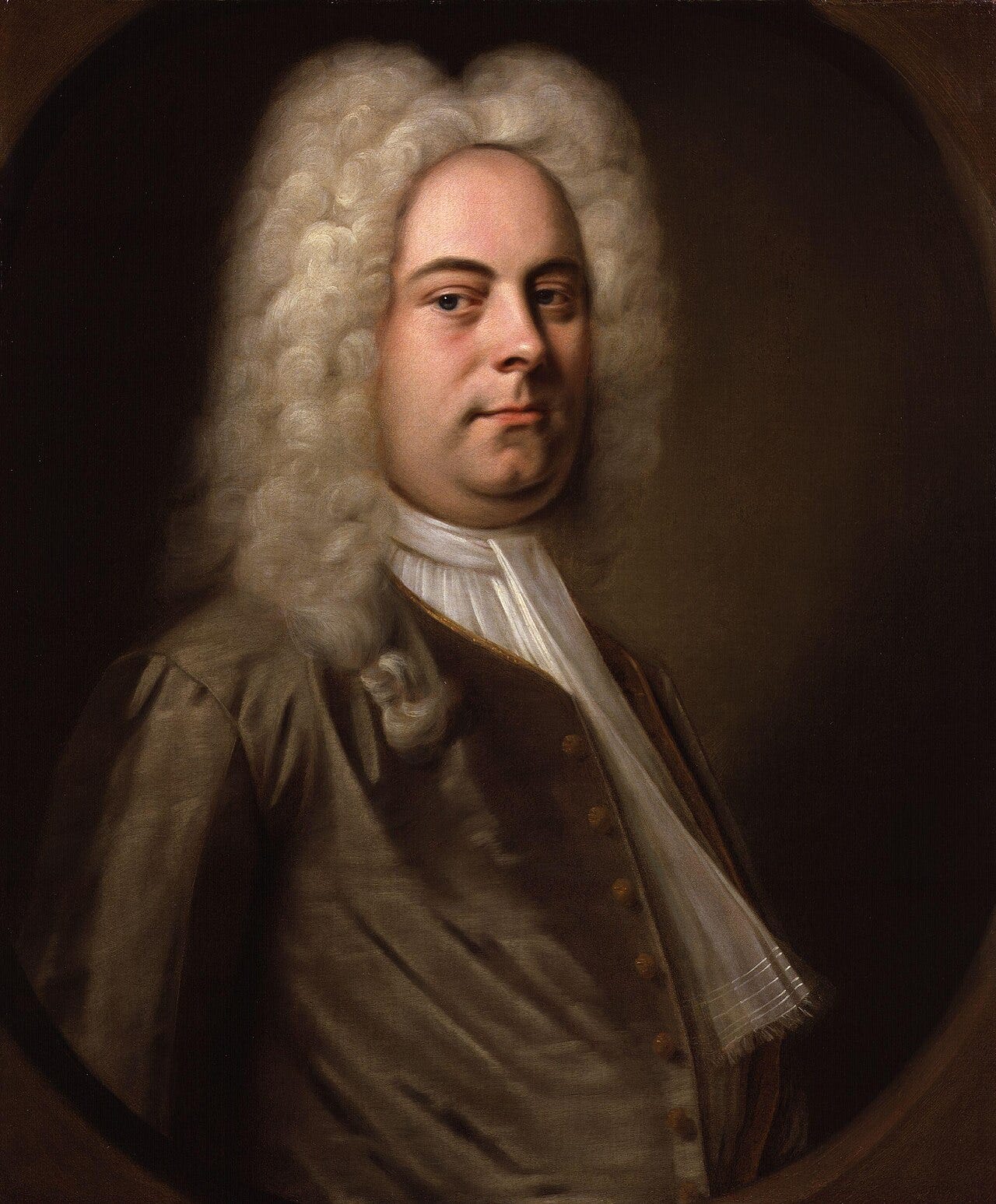Opera Daily 🎶 — Anne Sofie's Ariodante
This week's Opera Daily features “Dopo notte, atra e funesta,” an aria from the opera Ariodante by George Frideric Handel, performed by Anne Sofie von Otter
👋 Hello to the new Opera Daily subscribers who have joined us this week. I hope you’re sitting on a comfortable couch with a warm beverage and enjoying your weekend. You can check out the complete Opera Daily archives and the playlist on YouTube for more selections. If you were forwarded this email by a friend, join us by subscribing here:
Today we’re listening to…
“Dopo notte, atra e funesta,” an aria from the opera Ariodante by George Frideric Handel, performed by Anne Sofie von Otter.
Ariodante is one of Handel’s lesser-known operas, but it’s a gem filled with brilliant arias and ensembles. Written in 1735 during Handel’s London period, Ariodante is one of three Handel operas -- Orlando, Ariodante, and Alcina -- that is based on episodes from Ariosto’s great epic Orlando furioso.
🌟 Spotlight on Anne Sofie von Otter & Pants Roles: Swedish mezzo-soprano Anne Sofie von Otter is celebrated not just for the unmistakable clarity and depth of her voice but also for her interpretation of “pants roles.” These are roles where female singers portray male characters, often young men or adolescents, typically sung by mezzo-sopranos. Ariodante is one of the iconic pants roles in Baroque opera. She navigates the complexities of a male character experiencing profound emotional turmoil with sensitivity and depth, blending Handel’s Baroque ornamentations with her own distinctive warmth and expressiveness.
In the aria, Ariodante sings of his renewed joy and vigor after surviving an attempt on his life and being reunited with his love, Ginevra. It’s an incredible aria that showcases a singer’s virtuosity, with rapid runs and rhythms, expressing the protagonist’s joy and relief.
🎧 Treat Your Ears (7 minute listen): Anne Sofie von Otter delivering an incredible rendition of “Dopo notte, atra e funesta” (“After a dark and stormy night”) from George Frideric Handel’s Ariodante. She really knocks it out of the park here.
A Glimpse into Ariodante:
Premiere: London, January 8, 1735. During his tenure in London, Handel wrote numerous operas, with Ariodante ranking among the standouts.
Setting: The tale is set against the backdrop of medieval Scotland.
Premise: The opera delves deep into the human psyche, exploring themes of love, deception, misunderstanding, and eventual triumph over adversity.
Main Plot: Ariodante, the hero, is engaged to Ginevra, the daughter of the King of Scotland. Their love, initially pure, faces a severe test when Polinesso, Duke of Albany, desires Ginevra for himself. With the help of Dalinda, who is secretly in love with him, Polinesso hatches a scheme to besmirch Ginevra’s reputation and thereby break her engagement to Ariodante.
Deception: Polinesso deceives Ariodante and the King into believing that Ginevra has been unfaithful. Crushed by this perceived betrayal, Ariodante contemplates taking his own life but is stopped in the nick of time.
Revelations and Redemption: As the plot unfolds, the truth of Polinesso's betrayal is revealed. Dalinda, feeling remorse for her complicity, confesses to the entire plot. Polinesso's schemes are laid bare, leading to a duel in which he is fatally wounded.
Resolution: The opera concludes with Ariodante and Ginevra's love triumphant, their bond even stronger.
Throughout this narrative, Handel masterfully interweaves moments of intense drama with those of serene introspection, his music mirroring the tumultuous emotions of the characters. The pants role of Ariodante, especially, stands out, demanding not just vocal brilliance but also a deep understanding of the complex emotions that the character undergoes. With someone like Anne Sofie von Otter at the helm, this role is given life and depth, making Ariodante an opera experience that lingers long after the final note has been sung.
Grateful for your time and ears,
Michele
PS. Missed our last edition? We featured “O légère hirondelle,” a soprano aria from Act 3 of the French opera Mireille by Charles Gounod.
An ask: If you liked this piece, I’d be grateful if you’d consider tapping the ❤️ in the header above. This helps me understand which pieces you like most, and what we should do more of. Thank you!



1735 to today…timeless. Masterpieces like this capture the depth of human emotion. Now we get the less masterful expression thru the ping of social media. Thank God for opera! Thanks for sharing!
Sillls did ARIODANTE at the Kennedy Center but never in NYC.